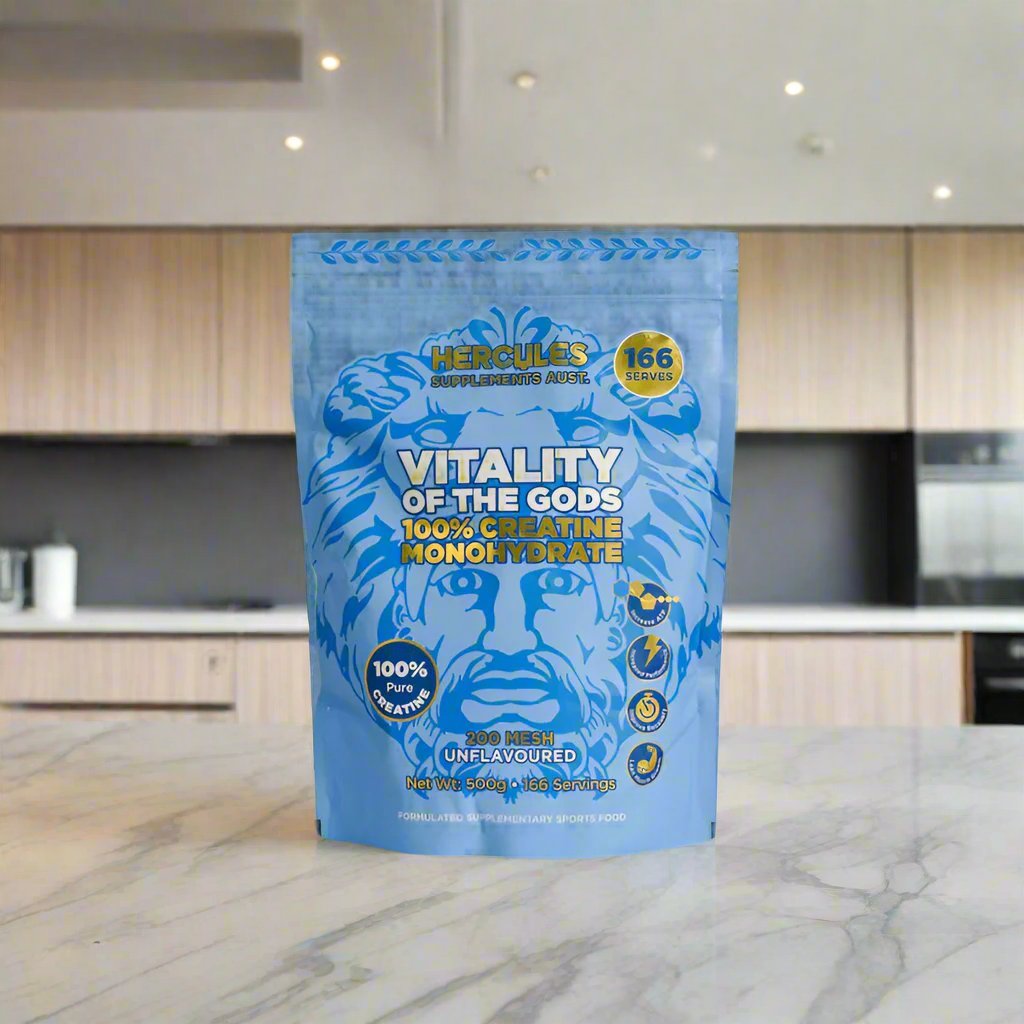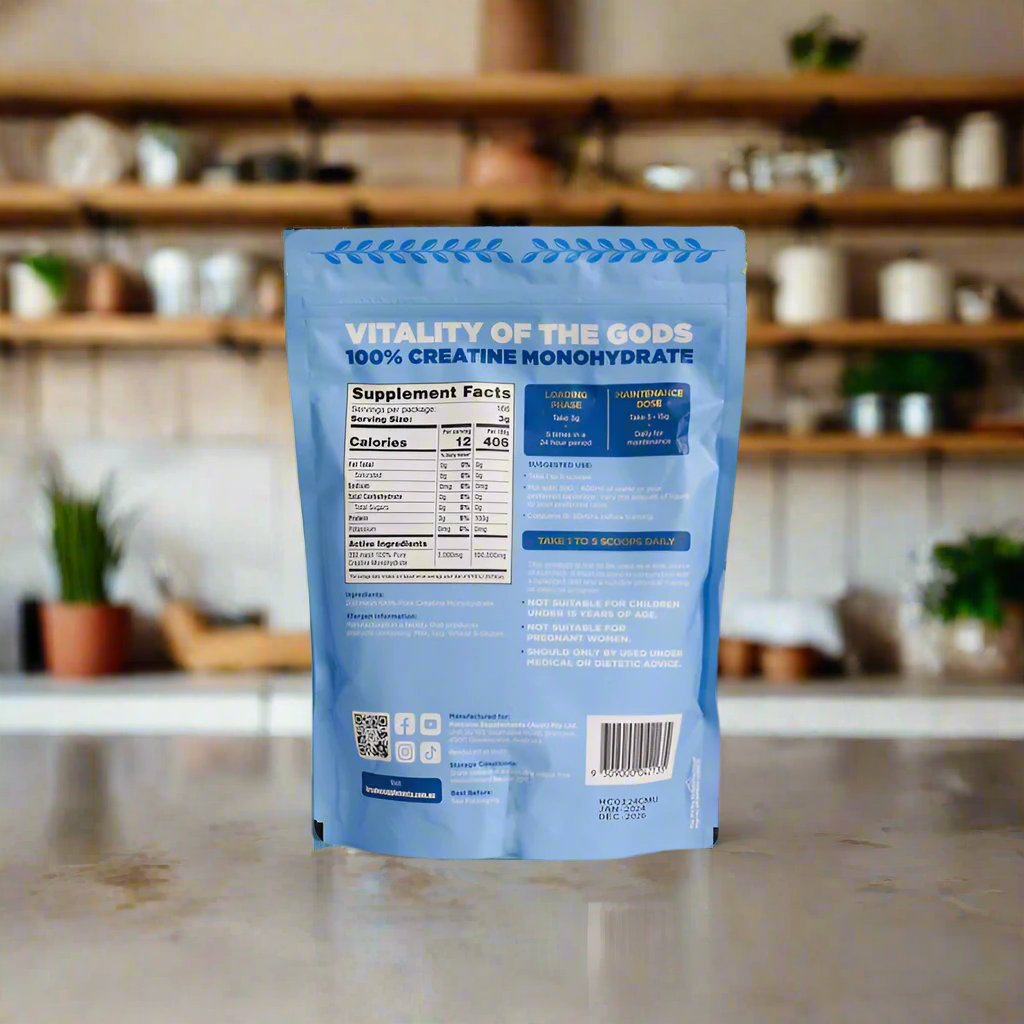

Vitality of the Gods - Creatine Monohydrate Powder
Order and get 70 reward points
Earn points by signing up for our rewards program
How to use
Flavours Explained
Fully Transparent Labels
No Artificial Sweeteners

100% Sugar Free
Trusted by 100,000s World Wide

About Vitality of the Gods - Creatine Monohydrate Powder
Description
Creatine monohydrate powder is a staple if you're looking to increase strength, energy, performance, and size. It is stored in the muscle as creatine phosphate. It is vital for adenosine triphosphate production, the primary energy source for high-intensity exercise.
Improve Cognitive function
Increase Myonuclei Donation
Inhibit Myostatin
Improve Strength and Power
Cell Hydration/ Volumisation
Increase Lean Muscle Accrual
Loading Protocol
How Creatine Works Within The Body
What Our Hercules Family Are Saying.
100,000s of Customers Making New Long Lasting Positive Health Changes
